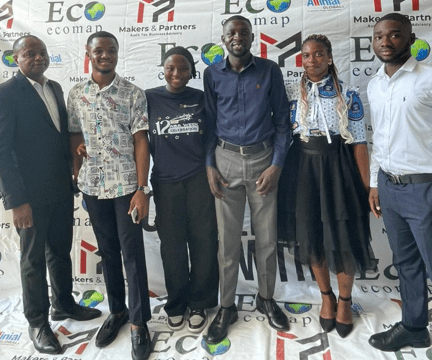Wilfred Neneh Addico, Advisory Partner at Makers and Partners, is urging government to revisit the implementation of the Emissions Levy Act, 2023 (Act 1112) to help promote the adoption of eco-friendly technology and green energy.
He mentioned that taxes to a large extent push people to behave properly; hence, this initiative would not only help address emissions but correct behaviours and as well generate revenue for government.
Mr. Addico made these remarks in an interview on the sidelines of an ESG and Climate Change forum organised by the University of Ghana (UG) Business School Accounting Association in collaboration with MAP, an audit firm.
The event, held under the theme ‘Environmental, Social and Governance practices for a sustainable future’, was tailored to engage students of the university, highlight the opportunities within the ESG space and as well train them on what they could do in terms of their academic path.
Mr. Addico said considering Ghana’s efforts in reducing its emissions by 2050 and “where we are now, we have not taken over as a nation to really address emissions; and so introducing tax will be a way for government to correct behaviours”.
He stated that there were large manufacturing companies in Ghana and their day to day activities emit a lot of carbon dioxide into the atmosphere. “We see the multinationals are committed to mitigating their emissions, but unfortunately much cannot be said about indigenous businesses.”
The Advisory Partner at MAP stressed that taxes should not be targeted at only motor vehicles, but industry (steel and manufacturing) so they could be committed to address the environmental damage they are causing. He also suggested that revenue generated from the taxes could be used to sponsor mitigation activities to ensure a balance.
Michael Boateng, an ESG and Carbon Trading Consultant, said the carbon tax law, if implemented, would create more opportunities where young people – particularly Accounting students – could tap into.
He mentioned that the law requires companies to submit their accounts at the end of every month to Ghana Revenue Authority. Therefore, in preparing accounts and audits, Accounting students must embrace these trends to be able to generate income. “For the accounting and auditing side, there is already an opportunity for them; but when it comes to carbon marketing, trading and carbon finance, students can use carbon credit to finance their start-ups.”
Professor William Coffie, Head of Accounting Department at UG Business School, said ESG provided stakeholders with a better understanding of how educational institutions, including UG, were integrating initiatives like sustainability into their curriculum.
This, he said forms part of the university’s commitment to equip students with the relevant skills for the 21st century industry, adding that “every single programme has a course dedicated for ESG”.










